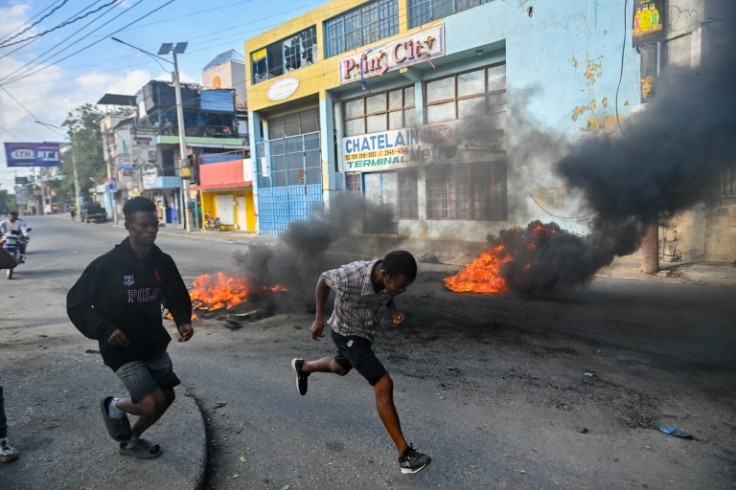
Haiti, where Ariel Henry resigned as prime minister this week, has a long history of unrest and violence. Gangs run much of the Western Hemisphere's poorest country, and in recent weeks joined forces to oust the unelected leader.
AFP looks at key chapters in Haiti's recent history:
For three decades from the late 1950s to the mid-1980s, the Caribbean country is ruled by the Duvalier family dictatorship, which became synonymous with torture and killings.
When Francois "Papa Doc" Duvalier dies in 1971, he is succeeded by his 19-year-old son Jean-Claude, "Baby Doc".
Jean-Claude Duvalier proclaims himself president for life in 1971 and installs a regime of terror with the help of the "Tonton Macoutes" militia.
In 1986, he goes into exile following a popular uprising over the human rights abuses committed by his regime. He lives in France for 25 years, returning to Haiti in 2011 where he dies three years later.
In 1990, a charismatic ex-priest from a shantytown, Jean-Bertrand Aristide, sweeps to victory in Haiti's first democratic elections.
Power changes hands several times before he returns to the presidency in 2001 in a vote dogged by claims of rigging.
He is forced to quit in 2004 in the face of an armed rebellion and goes into exile in South Africa.
The UN takes control of the country for two years, sending in a peacekeeping force.
A catastrophic magnitude 7.0 earthquake hits the country on January 12, 2010, killing some 200,000 people dead and causing devastating damage.
UN peacekeepers sent in after the quake spark a cholera epidemic, which kills about 10,000 people.
Gangs flourish as the former French slave colony struggles to get back on its feet.
Haiti sinks further into anarchy in July 2021 when President Jovenel Moise is gunned down inside his home near Port-au-Prince by a hired group of around 20 military-trained Colombians.
Ariel Henry takes over as acting leader. He promises to organize presidential elections but in September the polls are postponed indefinitely.
Gang violence spreads in 2023 to rural areas as the government's presence erodes further.
In October 2023, the UN Security Council agrees to send a multinational mission to Haiti, led by Kenya, to assist the Haitian police.
Henry refuses to meet a February 2024 deadline to cede power to newly elected officials.
On March 1, while Henry is in Kenya to try to speed up deployment of the multinational mission, armed gangs launch a coordinated assault to oust him.
They attack Port-au-Prince's airport, prisons, police stations and other strategic targets.
On March 5, influential gang leader Jimmy "Barbecue" Cherizier warns of "civil war" unless Henry steps down.
On March 11, Caribbean nations secure Henry's resignation at an emergency meeting in Jamaica to address the spiraling instability.
Guyana's President Irfaan Ali, who chairs the Caribbean regional body CARICOM, announces that Henry will leave once a new transitional authority is in place.
A US official traveling with Secretary of State Antony Blinken at the Jamaica talks says Henry is welcome to stay in Puerto Rico, where he found himself stranded.




